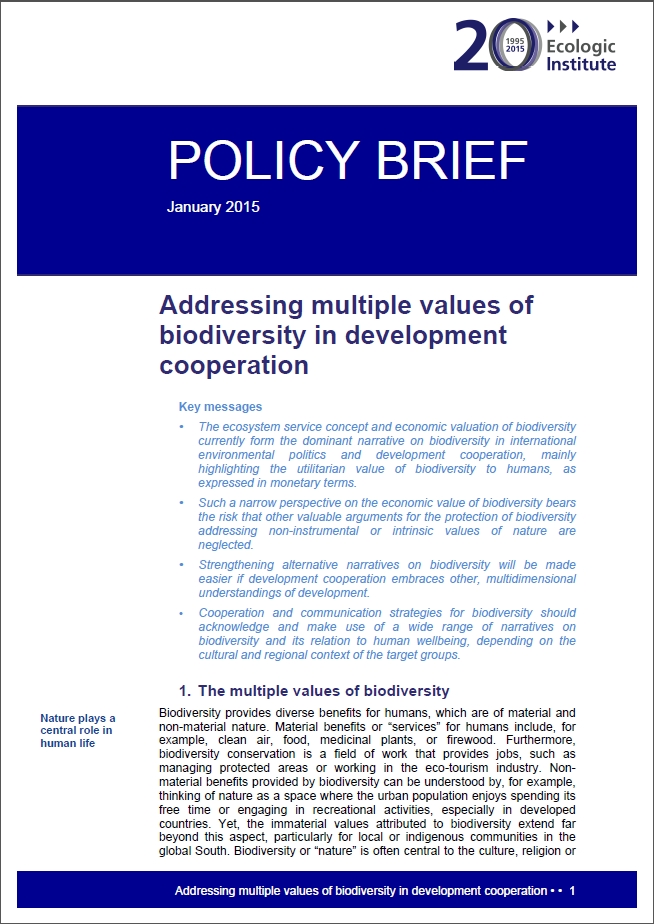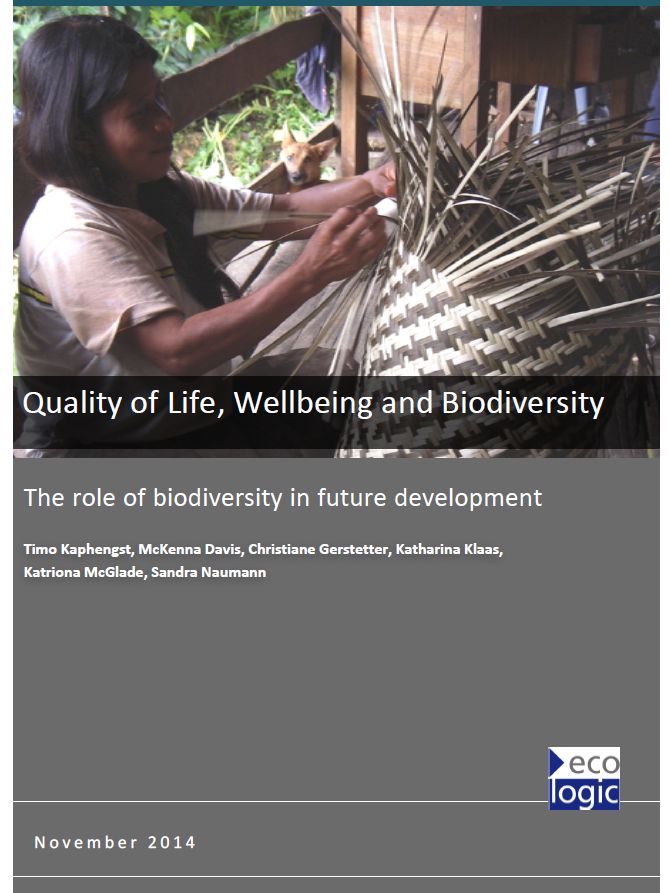What role does biodiversity play for human welfare and happiness? How do understandings of the connection between these issues differ between the global north and global south? In this project, commissioned by the GIZ (Deutsche Gesellschaft für internationale Zusammenarbeit), these questions were investigated against the background of the controversial discussion about the "commodification of nature", in order to assess differences and commonalities between various models of development. The project examined how different paradigms are applied in the practice of development cooperation.
Biodiversity is of crucial importance to human beings, both for the basic necessities of life such as food, as well as indirectly through ecosystem functions such as soil fertility and formation of ground water. Contemporary concepts such as that of ecosystem services have stepped up attempts to capture the benefits of biodiversity for humans in economic terms. These approaches seek to contribute to a better understanding of biodiversity as a crucial foundation for livelihoods and the economy, which must be preserved.
These concepts are based on an anthropocentric concept of "nature" as something separate from humans; its value consists primarily of its use value for humans. However, these paradigms often find themselves in conflict with holistic world views and views of nature, as are common in many countries in the global South and especially among indigenous peoples.
Many development organisations base their work on the assumption that developing countries have to follow a path of economic growth oriented on the same model as industrialized countries. In more recent discussions, this development paradigm has become increasingly critically questioned. As a basic rule, development cooperation activities should be tailored to the needs of recipient countries and require the active participation of their governments and people. Their success depends on the ability to build on local concepts of nature and the relationship between humans and nature as well as proven models of sustainable treatment of biodiversity. Non-anthropocentric world views and the associated models of sustainable use of natural resources that have been practiced for centuries can provide important impulses in the discussion on necessary changes to dominant development and economic paradigms and biodiversity’s role therein.
It is against this background that this project sought to achieve the following goals:
- Summary of the international discourse on the role of biodiversity in different societal paradigms and development models
- Elucidation of the connections between welfare, quality of life, and biodiversity
- Investigation of the application of these connections in programmatic policy at international level and in approaches of development cooperation in Germany
- Execution of practical case studies in Latin America, Africa, and Asia on the reflection of alternative development models and their integration in development cooperation
- Deriving of trend projections and recommendations for development policy and international cooperation
- Organisation of an expert workshop to discuss and validate political recommendations




